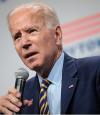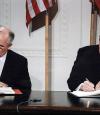Site Search
Copyright © 2024 Highbrow Magazine
by Eric Vickrey
Professional baseball faced a similar postwar influx. More than 500 major leaguers and 4,000 minor leaguers had swapped jerseys for military fatigues during the previous four years. Two former big leaguers, Harry O’Neill and Elmer Gedeon, plus more than 100 minor-league players, lost their lives.
Read more...by Ben Friedman
In curating this lineup, I selected four films that all share one specific point of commonality: flawed people trying to make it through their day despite the odds being stacked against them. Some stories are more successful than others, yet these four films demonstrate a unique perspective in their search to make sense of our current American lifestyles.
Read more...

























































































































































































































































































































Copyright © 2024 Highbrow Magazine







